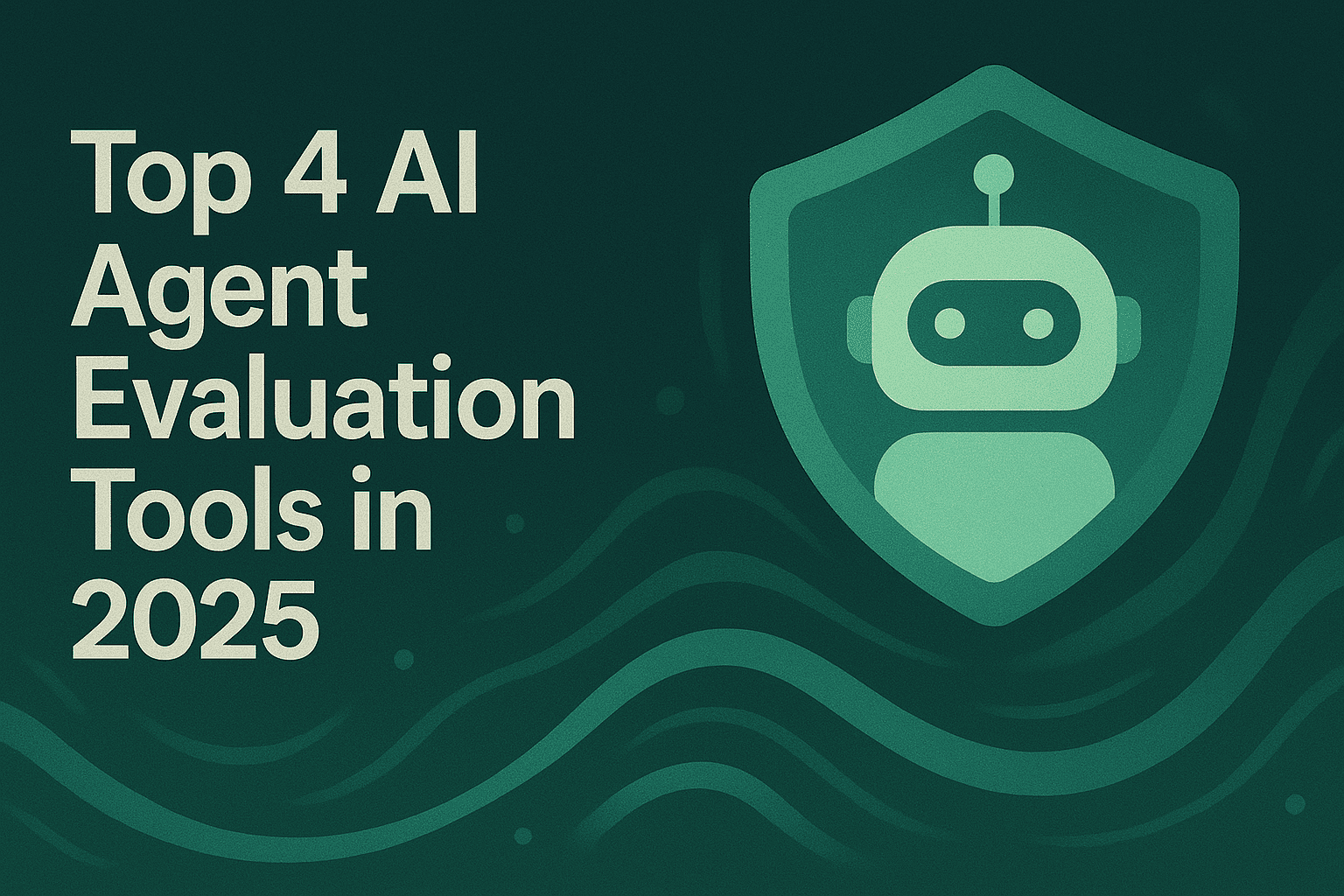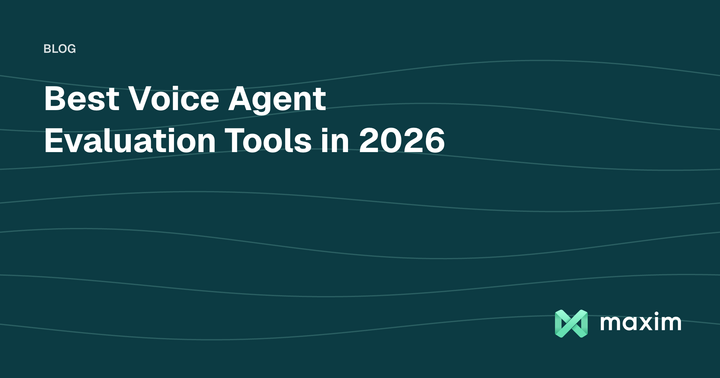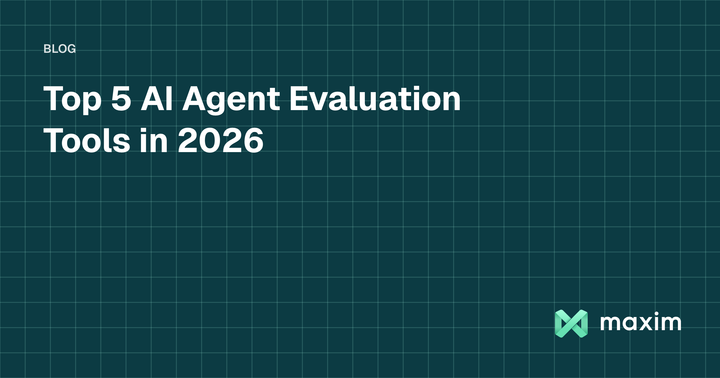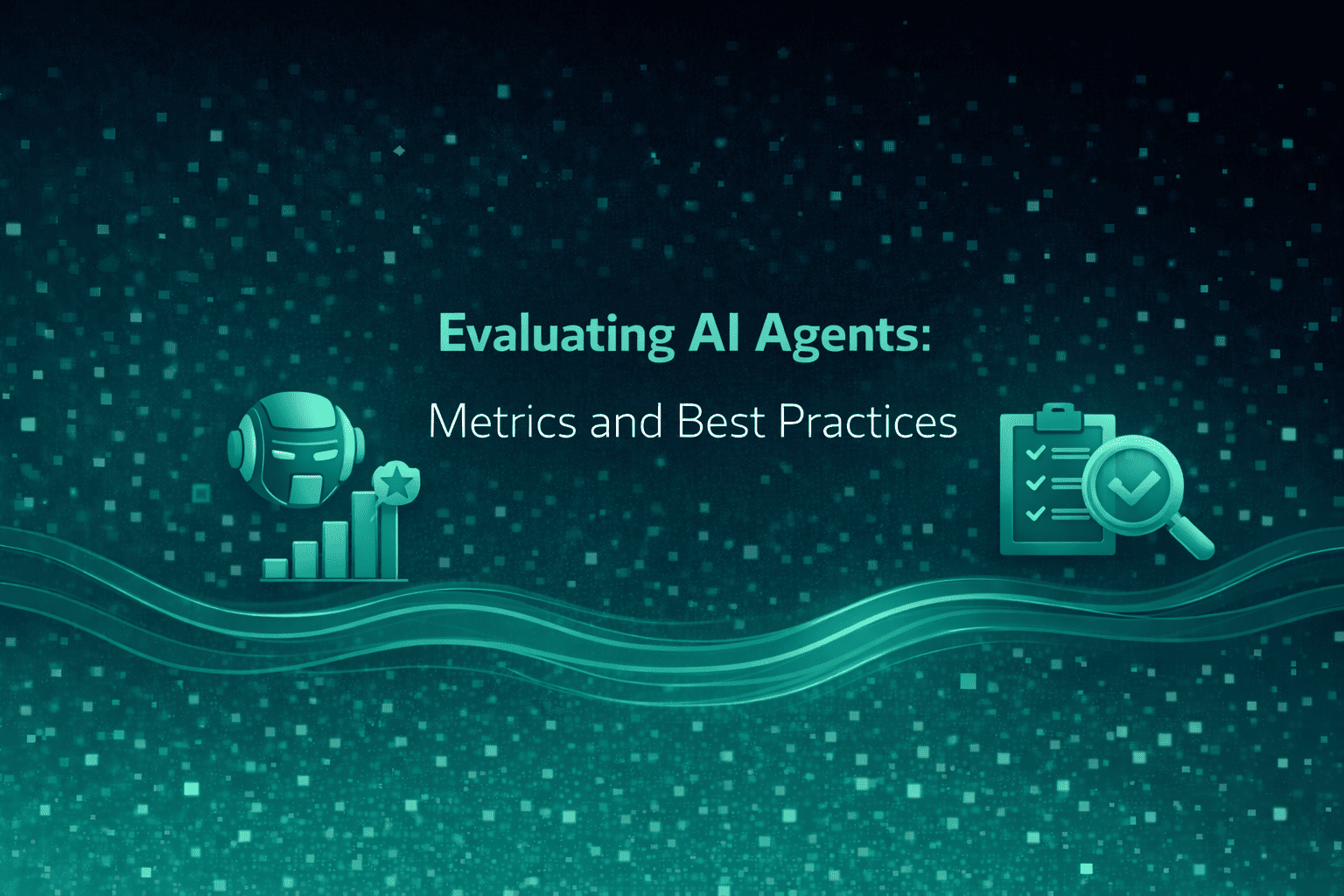Top 4 AI Agent Evaluation Tools in 2025

TL;DR
Evaluating AI agents in production requires comprehensive platforms that cover simulation, testing, and monitoring across the agent lifecycle. This comparison examines the top 4 AI agent evaluation tools in 2025: Maxim AI, Langfuse, Comet Opik, and Arize. Maxim AI provides end-to-end simulation, evaluation, and observability with superior cross-functional collaboration capabilities. Langfuse offers open-source flexibility for custom workflows. Comet Opik integrates LLM evaluation with experiment tracking. Arize delivers enterprise-grade monitoring with ML observability heritage. Select your platform based on production requirements, team structure, and evaluation maturity needs.
AI agents now handle mission-critical business workflows, from customer support automation to complex decision-making systems. As these agentic applications scale in production environments, evaluation becomes the primary differentiator between reliable systems and failed deployments. Organizations require platforms that validate agent behavior before release, monitor performance in real-time, and enable continuous optimization through data-driven insights. This analysis examines the top 4 AI agent evaluation platforms in 2025, comparing their capabilities across simulation, evaluation frameworks, observability features, and production readiness to help engineering and product teams select the right solution for shipping reliable AI applications.
1. Maxim AI: The Complete Platform for Production-Grade AI Agents
Website: getmaxim.ai
Why Maxim AI Dominates AI Agent Evaluation
Maxim AI is purpose-built for organizations deploying production-grade AI agents that require unified simulation, evaluation, and observability throughout their entire lifecycle. Unlike point solutions that address only one aspect of agent quality, Maxim provides an integrated platform covering prompt engineering, simulation, evaluation (both online and offline), and real-time monitoring, ensuring AI applications consistently deliver superior user experiences.
Key Capabilities
- Multi-Turn Agent Simulation: Test agents in realistic scenarios with complex decision chains, multi-step tool use, and conversational interactions. Simulation capabilities enable teams to validate agent behavior across hundreds of user personas and edge cases before production deployment.
- Advanced Prompt Management: Centralized prompt CMS with version control, visual editors, and side-by-side comparisons. The Playground++ environment allows teams to iterate rapidly, run experiments, and A/B test prompts directly in production environments without code changes.
- Comprehensive Evaluation Framework: Execute automated and human-in-the-loop evaluations on end-to-end agent quality using pre-built evaluators or custom metrics. Build scalable evaluation pipelines that integrate seamlessly with CI/CD workflows, measuring everything from task completion rates to conversational quality.
- Production-Grade Observability: Node-level distributed tracing with visual trace visualization, OpenTelemetry compatibility, and real-time alerting for monitoring live systems. Native support for leading agent frameworks including OpenAI, LangGraph, LangChain, and Crew AI makes integration straightforward.
- Enterprise Security and Compliance: SOC2, HIPAA, ISO27001, and GDPR compliance with fine-grained role-based access control, SAML/SSO authentication, comprehensive audit trails, and flexible deployment options including in-VPC hosting.
- Flexible Pricing Models: Usage-based and seat-based pricing structures accommodate teams of all sizes, from scaling startups to large enterprises requiring dedicated support.
What Sets Maxim Apart
- Superior Developer Experience: Highly performant SDKs for Python, TypeScript, Java, and Go with native integrations for all major agent orchestration frameworks enable seamless implementation.
- Cross-Functional Collaboration: Maxim bridges Product and Engineering teams with an intuitive UI that enables non-technical users to configure evaluations, review agent performance, and iterate on prompts without engineering dependencies.
- No-Code Evaluation Capabilities: Product teams can run comprehensive evaluations directly from the UI, whether testing individual prompts or complete agents built in Maxim's no-code agent builder or external platforms.
- Real-World Simulation at Scale: Agent simulation replicates authentic user interactions across diverse scenarios and personas, accelerating testing cycles by orders of magnitude.
- Intelligent Alerting: Real-time notifications through Slack and PagerDuty integration ensure teams respond immediately to production issues.
- Data-Driven Quality Enhancement: Comprehensive evaluation queues combine automated metrics with human annotation, continuously aligning agents to human preferences across qualitative and quantitative dimensions.
Additional Resources
- Understanding AI Agent Quality Evaluation
- Dynamic Metrics for Agent Performance
- Building Robust Evaluation Workflows
- Maxim Documentation
2. Langfuse: Open-Source Observability for Custom Workflows
Website: langfuse.com
Langfuse has established a strong position as an open-source platform for LLM observability and evaluation, particularly appealing to teams that prioritize transparency, self-hosting capabilities, and deep customization of their evaluation workflows.
Core Features
- Open-Source Architecture: Complete control over deployment infrastructure, data governance, and workflow customization with full access to source code.
- Distributed Tracing: Comprehensive visualization and debugging of LLM calls, prompt chains, tool invocations, and multi-agent interactions.
- Extensible Evaluation Framework: Flexible support for custom evaluators, prompt versioning, and experiment tracking tailored to specific use cases.
- Human Review Integration: Built-in annotation queues facilitate human evaluation workflows for qualitative assessment.
Ideal Use Cases
Langfuse serves teams that require complete control over their evaluation infrastructure, particularly organizations building custom LLMOps pipelines with strong internal developer resources. The platform resonates with engineering teams that value transparency and want to avoid vendor lock-in while maintaining flexibility for unique evaluation requirements.
3. Comet Opik: Unified Experiment Tracking for ML and LLM Evaluation
Website: comet.com
Comet Opik extends the established Comet ML platform into LLM evaluation territory, providing a natural integration point for data science teams already leveraging Comet for traditional machine learning experiment management.
Key Capabilities
- Comprehensive Experiment Tracking: Log, compare, version, and reproduce LLM experiments at scale with the same rigor as traditional ML workflows.
- Multi-Paradigm Evaluation Support: Integrated evaluation capabilities for RAG systems, prompt optimization, and agentic workflows within a unified interface.
- Custom Metrics and Dashboards: Build domain-specific evaluation pipelines with custom metrics, visualizations, and team-wide dashboards.
- Cross-Team Collaboration: Share evaluation results, annotations, and insights across data science, engineering, and product teams.
Best Suited For
Data science organizations seeking to unify LLM evaluation with broader ML experiment tracking, governance, and model management workflows. Particularly valuable for teams that want consistent tooling across traditional ML and generative AI projects.
4. Arize: Enterprise Monitoring with ML Observability Heritage
Website: arize.com
Arize brings mature ML observability capabilities to the LLM space, emphasizing continuous performance monitoring, behavioral drift detection, and enterprise-grade compliance for production systems.
Primary Features
- Granular Tracing Infrastructure: Session-level, trace-level, and span-level visibility into LLM workflows with comprehensive debugging capabilities.
- Drift and Anomaly Detection: Identify changes in model behavior, input distributions, and output quality over time through statistical analysis.
- Production Alerting: Real-time notifications through Slack, PagerDuty, OpsGenie, and other incident management platforms.
- Specialized Evaluators: Purpose-built evaluation frameworks for retrieval-augmented generation systems and multi-turn agent interactions.
- Enterprise Compliance: SOC2, GDPR, HIPAA compliance with advanced role-based access control and audit logging.
Target Audience
Enterprises with established ML infrastructure seeking to extend robust monitoring, compliance frameworks, and observability practices to LLM-powered applications. Well-suited for organizations with mature MLOps teams and strict regulatory requirements.
Selecting the Right AI Agent Evaluation Tool
Choosing the optimal evaluation platform depends on your team's specific requirements, technical maturity, and operational priorities:
Maxim AI excels for teams building sophisticated, production-grade agentic systems where end-to-end simulation, comprehensive evaluation, and real-time observability are critical. The platform uniquely bridges Product and Engineering teams, accelerating development cycles while maintaining quality standards.
Langfuse serves teams requiring open-source flexibility, complete infrastructure control, and deep customization of evaluation workflows, particularly those building proprietary LLMOps pipelines.
Comet Opik fits data science organizations seeking unified experiment tracking across traditional ML and LLM projects, maintaining consistency in evaluation practices.
Arize targets enterprises requiring mature observability infrastructure with enterprise-grade compliance, particularly organizations extending existing ML monitoring capabilities to generative AI.
Advancing AI Agent Quality and Reliability
As AI agents become more prevalent in production environments, evaluation rigor separates successful deployments from failed experiments. The right evaluation platform accelerates development cycles, prevents costly production failures, and ensures agents consistently meet quality standards.
For teams serious about building reliable, high-performance AI agents, comprehensive evaluation frameworks covering simulation, testing, and continuous monitoring are no longer optional but essential components of the AI development lifecycle.
Explore how Maxim AI's comprehensive platform enables teams to build, evaluate, and monitor next-generation AI agents with confidence. Ready to elevate your AI agent quality? Book a demo to see how Maxim can transform your agent development workflow, or sign up to start evaluating your agents today.


